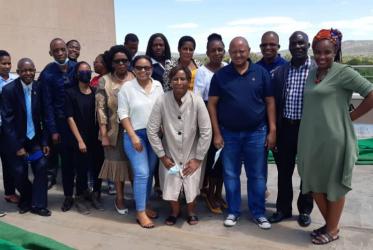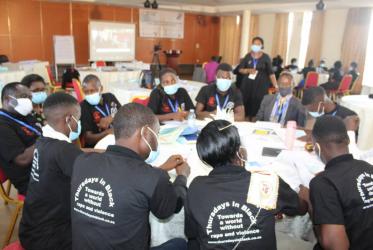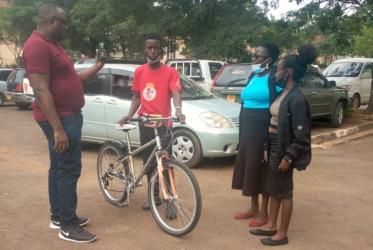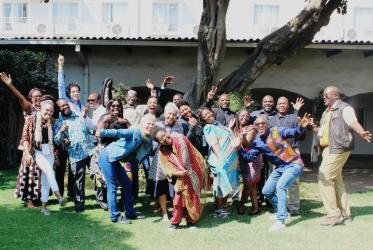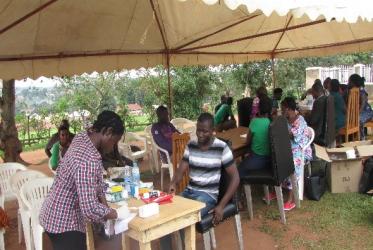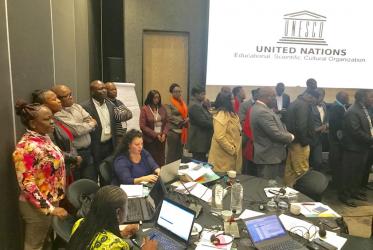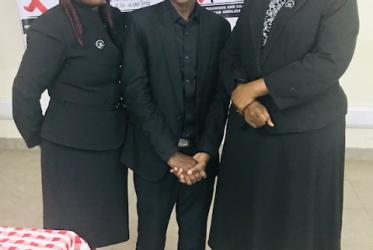Displaying 1 - 20 of 41
“Gathering in Grief” mourns Rev. Phumzile Mabizela
07 July 2021
In Uganda, resilience and hope overshadow stigma
31 July 2020
Youth leaders: “We will stop at nothing” to end HIV and violence
17 October 2019
Frontline advocates in Uganda are putting a stop to HIV stigma
16 September 2019
WCC treatment manuals address HIV challenges in Uganda
02 August 2019
WCC-EHAIA pioneer receives honorary doctorate
21 March 2018
